class: middle # Removing fragility from software with the **EYG** programming language --- class: middle ## **Hi** ### *name -* Peter Saxton ### *@internets -* CrowdHailer ### *works -* Experimenting in building better languages and tools at [eyg.run](https://eyg.run) <img style="display:inline;width:100px;" src="https://avatars.githubusercontent.com/u/1481354?s=200&v=4" alt="Penelopea, EYG's mascot" class="w-full max-w-xl"> <img style="display:inline;width:100px;" src="https://gleam.run/images/lucy/lucy.svg" alt="Penelopea, EYG's mascot" class="w-full max-w-xl"> <img style="display:inline;width:100px;" src="https://eyg.run/assets/pea.8C463682609CAA4A5A638D66BAA7C5F8115EB83B6ED1D7FA3DE7ABC8F2CAB5AA.webp" alt="Penelopea, EYG's mascot" class="w-full max-w-xl"> --- class: middle ## What is **fragility**? How susceptible is something to damage or breaking? --- class: middle ## Why do programs **break**? You probably have an intuition. --- class: middle ### ChatGPT 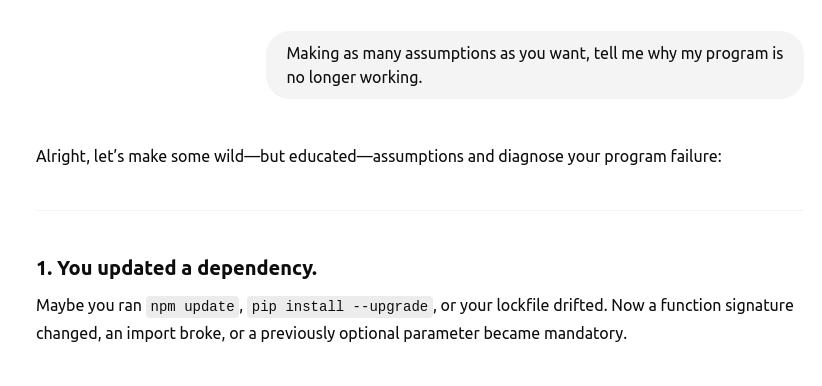 --- class: middle 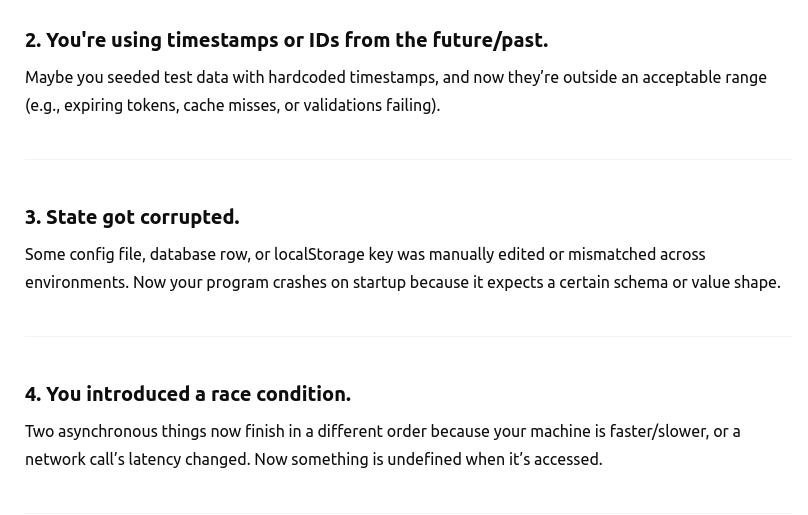 --- class: middle 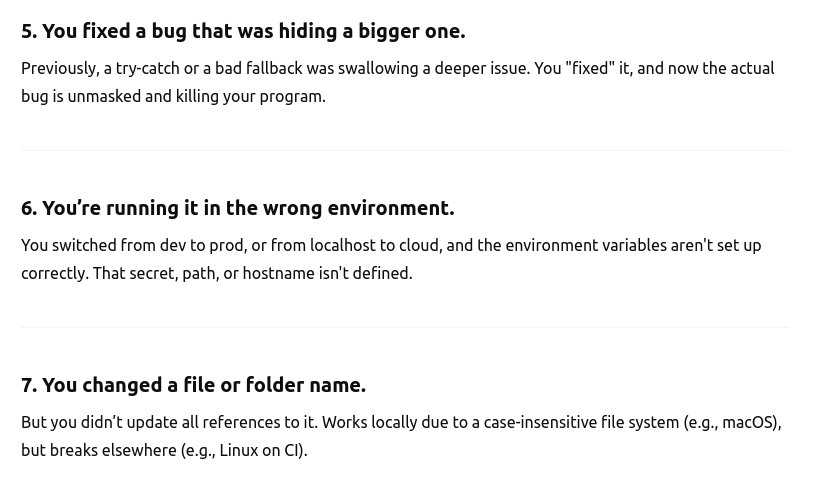 --- class: middle 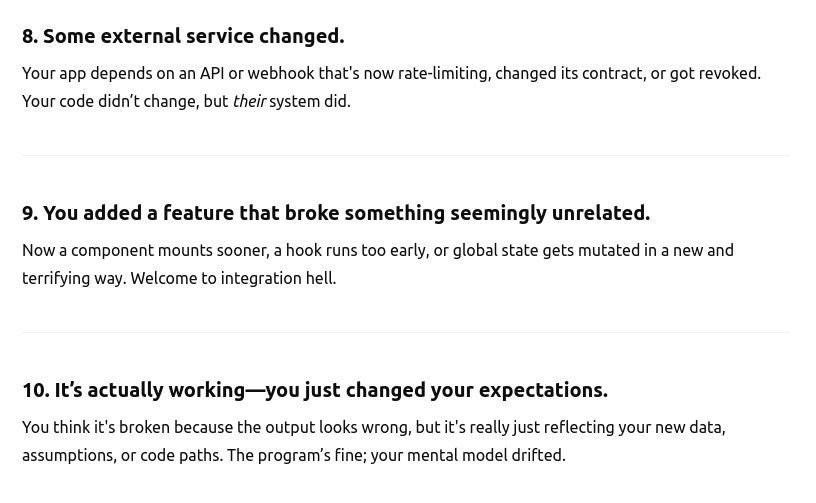 --- class: middle ## What helps - Type systems - Formal proofs - Simulation testing - Immutability - Containers --- class: middle ### Not crashing is **enough** 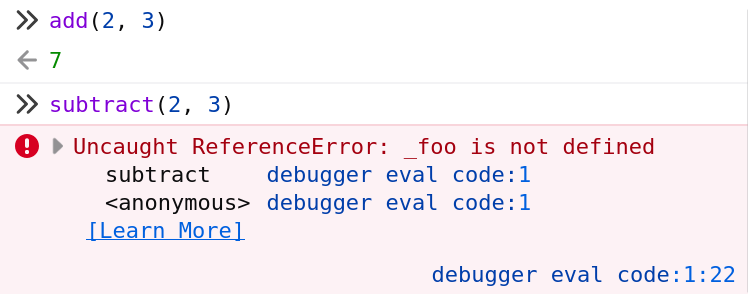 --- class: middle ## Where do **crashes** come from? --- class: middle ## Crashes are **Weird** - Lambda calculus cannot crash - Lambda calculus may not terminate - `(λx. x x) (λx. x x)` - We added the ability to crash. --- class: middle ```py import sys data = sys.stdin.read() print("You entered:") print(data) ``` ```sh EOFError: EOF when reading a line ``` --- class: middle ## What is **EYG?** A way to write programs that: - Never crash. - Run anywhere. Make any invalid state unrepresentable --- class: middle ## EYG the **Basics** - Statically typed - Structurally typed - Sound type inference - Algebraic effects - Closure serialization - Strongly typed REPL - Inline references - Minimal AST --- class: middle <iframe style="width: 100%;height: 55vh;" src="https://eyg.run/editor"></iframe> --- class: middle ## What is **Eat Your Greens**? > Beyond diet, "eat your greens" can symbolize doing things that are good for you, even if they're not immediately enjoyable or easy. --- class: middle # Features of **EYG** - Algebraic effects - Structural typing - Hashed dependencies --- class: middle ## Effects 1. **What can they do?** 2. How do they run? --- class: middle ## **Algebraic** effects An abstraction to represent all impure behaviour including: - Input and output operations - Non determinism i.e. random - Time - Exceptions - Concurrency - Mutability --- class: middle <iframe style="width: 100%;height: 55vh;" src="https://eyg.run/editor"></iframe> **Demo time:** using effects --- class: middle ### **Algebraic** effects Represent every interaction with the real world in the type system. ``` add: (Int, Int) -> Int alert: (String <Alert>) -> {} map: (List(0), (0 <..2>) -> 1 <..2>) -> List(1) ``` Typing of effects is **sound** and **extensible**. --- class: middle <iframe style="width: 100%;height: 55vh;" src="https://eyg.run/editor"></iframe> **Demo time:** typing effects --- class: middle ### **Algebraic** effects Effects become the only interface Effects are an interesting design space for their impact on developer experience. ``` tweet: (String <Fetch>) -> {} tweet: (String <Tweet>) -> {} tweet: (String <Twitter.Tweet>) -> {} ``` The platform can offer anything as an effect. ``` is_cat: (Binary <IsPNGImageOfCat>) -> True {} | False {} ``` --- class: middle ### **Algebraic** effects Platforms can offer any subset of effects for programs to run against.  [**erlang recently got tty*](https://www.erlang.org/news/174#shell-and-terminal) --- class: middle ### **Algebraic** effects Effects are a uniform interface - Singular approach for mocking in tests - A basic permissions system --- class: middle <iframe style="width: 100%;height: 55vh;" src="https://eyg.run/editor"></iframe> **Demo time:** handling effects --- class: middle ## Effects 1. What they can do? 2. **How do they run?** --- class: middle ### What is a **function**? > A function is the relation between a set of inputs and a set of outputs, so that every set of inputs has exactly one output.  --- class: middle Functions compose. 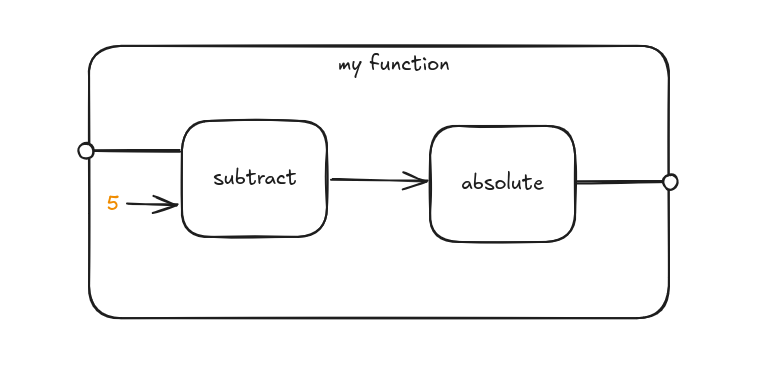 Functions can be values.  --- class: middle ### Side **effects** and side **causes** 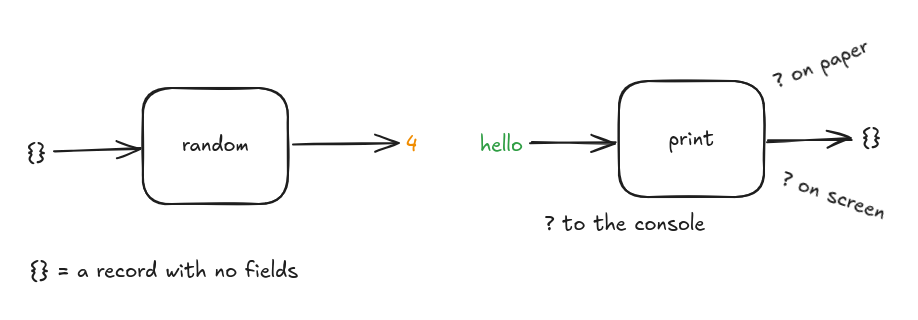 --  --- class: middle Side effects depend on the whole world. 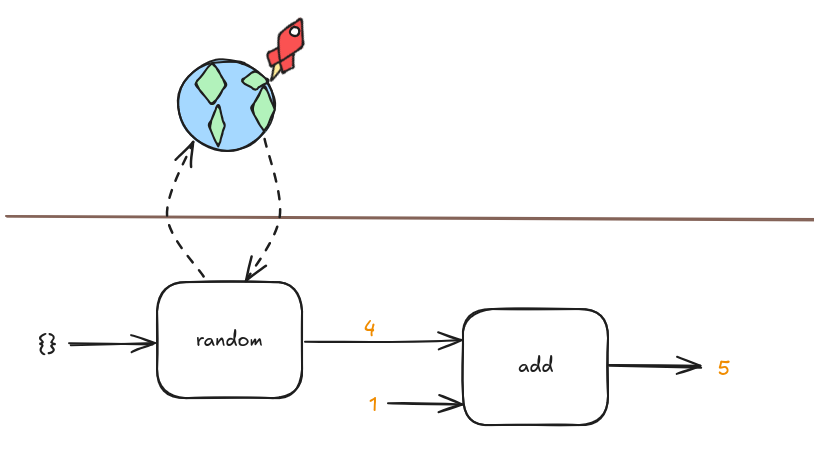 --- class: middle A quick aside for **continuations** 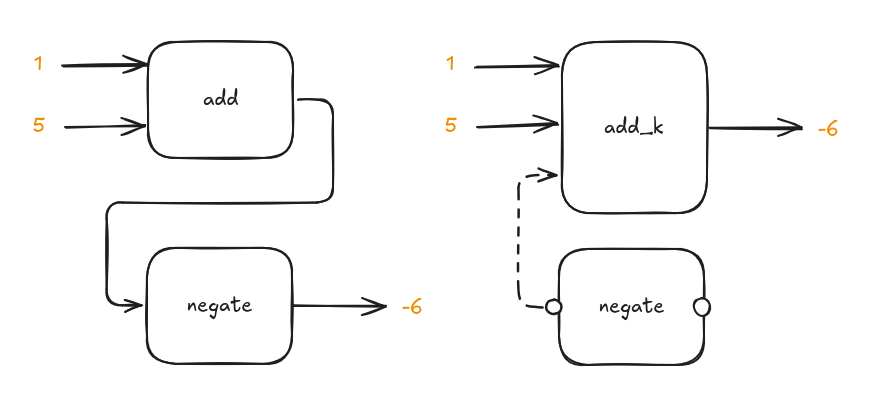 *The best resource explaining continuations is. [Delimited Continuations, Demystified by Alexis King](https://www.youtube.com/watch?v=TE48LsgVlIU)* --- class: middle Programs **perform** effects with the remaining program captured as a continuation. 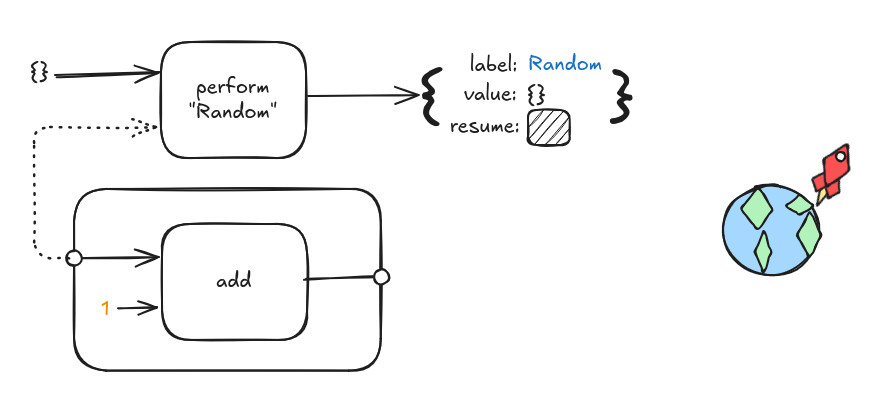 --- class: middle Runtimes **resume** programs by calling the stored continuation  --- class: middle ## **Never** crash? - An EYG program is deterministic in the absence of effects. - EYG programs are serializable - A serialized continuation can always be run on another computer with the same input. --- class: middle # Structural typing --- class: middle ### Benefits of a type system 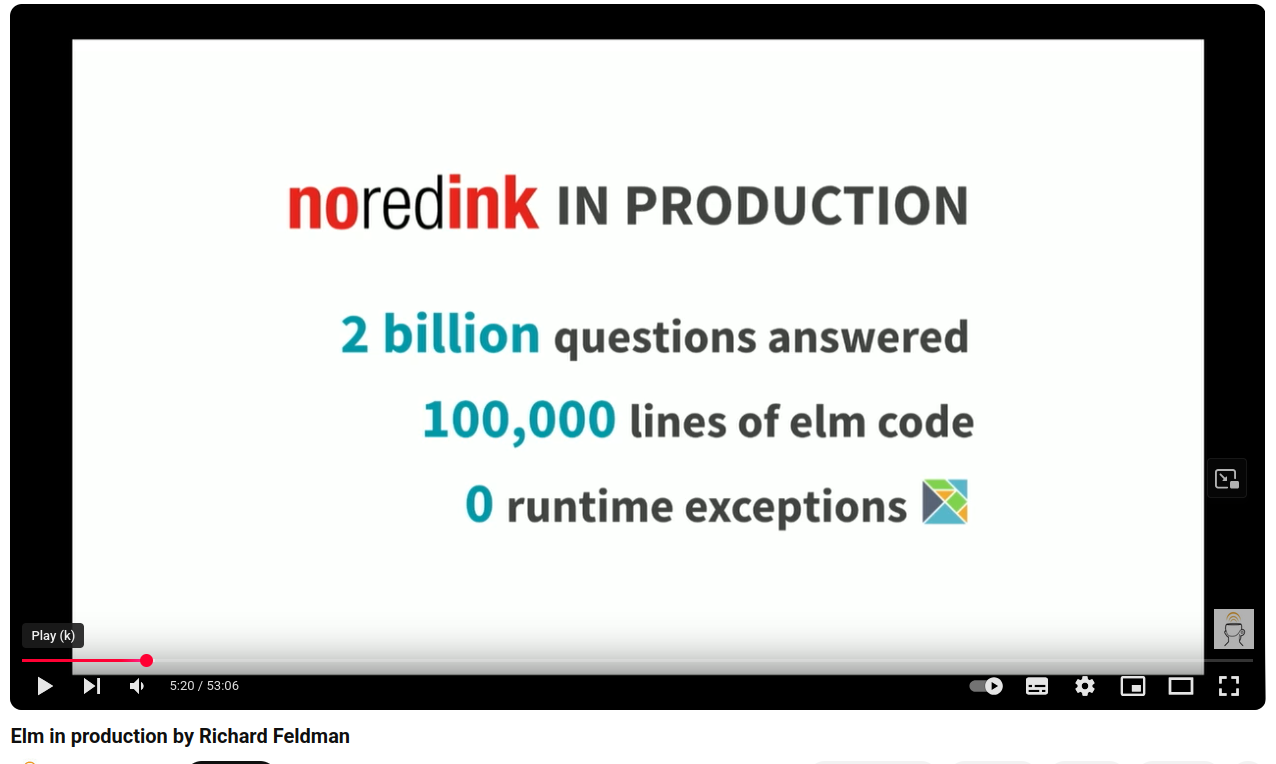 --- class: middle ### Benefits of a type system What do types add to this Python program? ```py print("Hello, World!") ``` Did you appreciate types the first day you were coding? --- class: middle What does a **type system** offer. - Consistency based on some axioms. - The axioms are the perimeter. - The wider the perimeter of our axioms the more valuable the type system. --- class: middle ### Web development 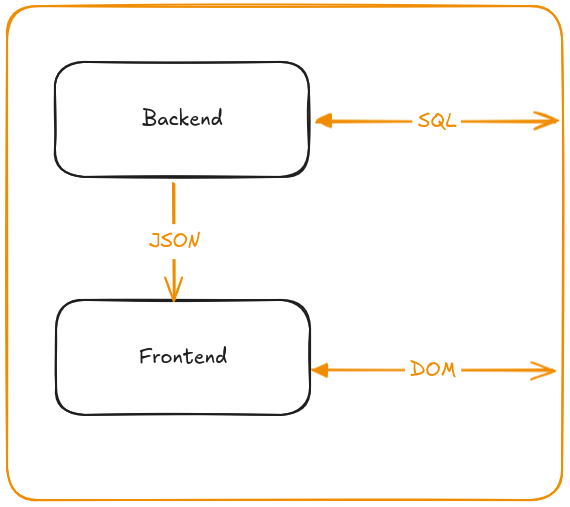 --- class: middle ### Metaframeworks, Liveview 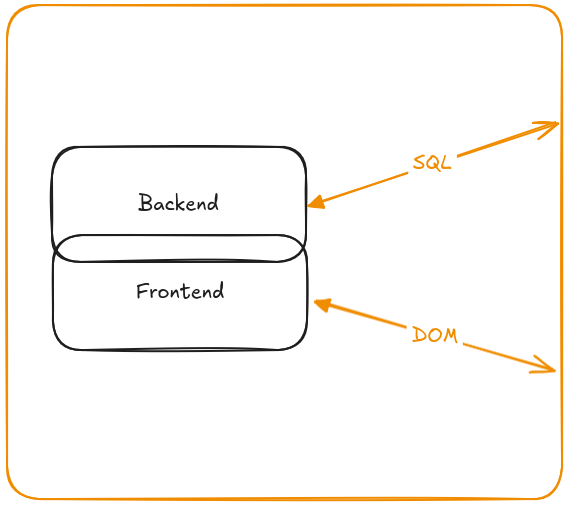 --- class: middle ### Web development It's far more than a frontend/backend split - Local development - Build servers - CI/CD - codegen - Backend/frontend - Service workers - Background queues - Infra provisioning - Database queries How often do we statically check the glue? --- class: middle 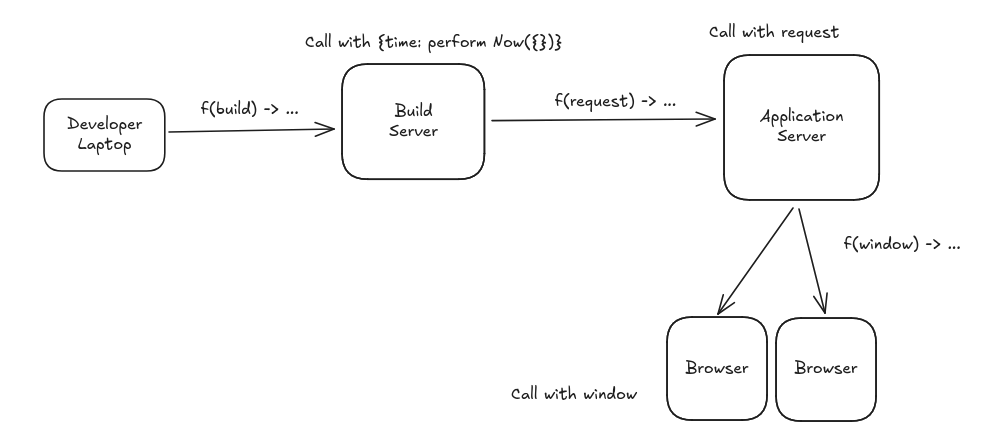 <script type="application/json+eyg">{"0":"l","l":"system","v":{"0":"f","l":"config","b":{"0":"f","l":"request","b":{"0":"f","l":"client","b":{"0":"a","f":{"0":"p","l":"Alert"},"a":{"0":"s","v":"hi"}}}}},"t":{"0":"v","l":"system"}}</script> --- class: middle ### Closure serialization <script type="application/json+eyg"> {"0":"l","l":"message","t":{"0":"l","l":"amount","t":{"0":"l","l":"f","t":{"0":"a","a":{"0":"v","l":"f"},"f":{"0":"b","l":"capture"}},"v":{"0":"f","b":{"0":"a","a":{"0":"v","l":"amount"},"f":{"0":"a","a":{"0":"i","v":1},"f":{"0":"b","l":"int_add"}}},"l":"_"}},"v":{"0":"i","v":10}},"v":{"0":"s","v":"hello"}} </script> --- class: middle ### Closure serialization <script type="application/json+eyg"> {"0":"l","l":"$","t":{"0":"l","l":"string","t":{"0":"l","l":"app","t":{"0":"z"},"v":{"0":"f","b":{"0":"l","l":"_","t":{"0":"u"},"v":{"0":"a","a":{"0":"s","v":"Hello"},"f":{"0":"p","l":"Alert"}}},"l":"_"}},"v":{"0":"a","a":{"0":"v","l":"$"},"f":{"0":"g","l":"string"}}},"v":{"0":"@","l":{"/":"baguqeeragtrji4oxi2ro6bpuo6bqiogjrwhvnmung3d7z5uf4hriebz5ujua"},"p":"standard","r":1}} </script> --- class: middle ### Thought experiment Imagine a **perfect** language, but: - libc is not installed - You're calling an undocumented JSON API - You need to implement OAuth to get a token - The deployment pipeline is a lot of bash --- class: middle ### Unix philosophy 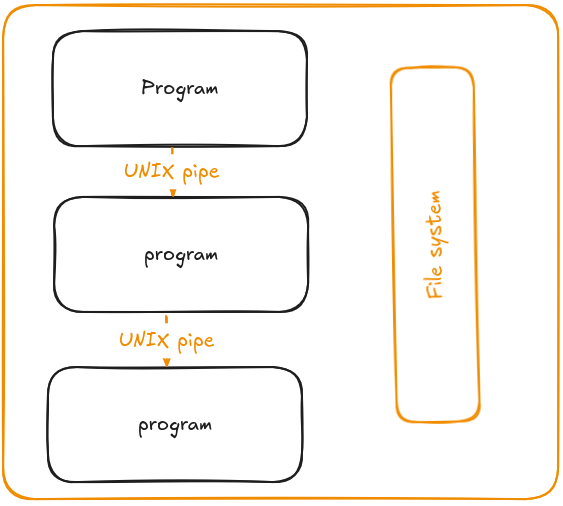 --- class: middle ### Kubernetes 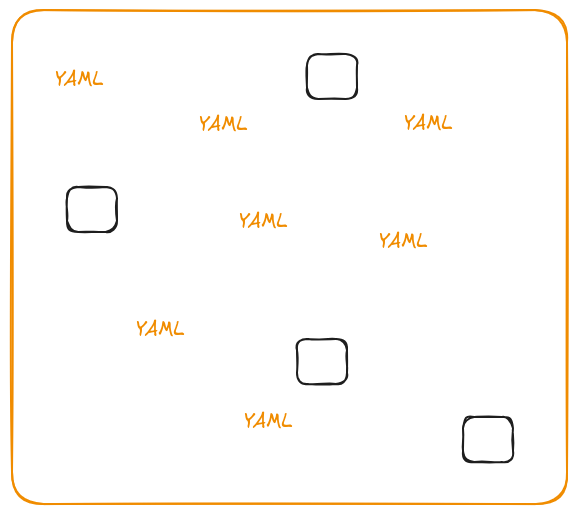 --- class: middle ### Can we type check the **system**? yes --- class: middle ### Structural or Nominal typing? - Structural types are **universal** - Nominal types have a bounded validity, *usually a single compilation.* - Nominal typing requires type declarations --- class: middle ### Structural or Nominal typing? Java ```java class Person { public name: string; } ``` TypeScript ```ts interface Person { name: string; } ``` --- class: middle ### Deployment 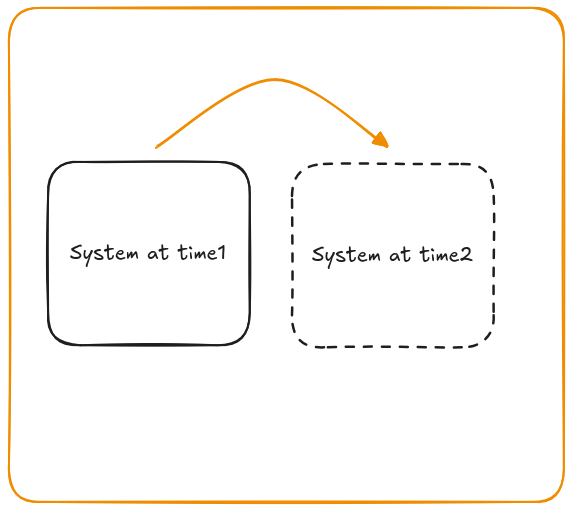 --- class: middle Demo code reloading --- class: middle ### Deterministic dependencies - Every dependency has an inline checksum - Every dependency is pure and it's type is narrowed. --- class: middle <iframe style="width: 100%;height: 55vh;" src="https://eyg.run/editor"></iframe> --- class: middle ## Eat your **Greens** A simple type system leveraged everywhere is more interesting than a complex one limited to the application. - Development environments - Build servers - CI/CD - codegen - Backend/frontend - Service workers - Background queues - Infra provisioning - Database queries A single typed program should extend over the whole stack --- class: middle ## Run anywhere It's all about the effects. - Transpile to Google Apps script - Transpile to Figma Plugin - Transpile to tinyGo --- class: middle ## Thank you https://eyg.run - https://eyg.run/news - https://eyg.run/roadmap